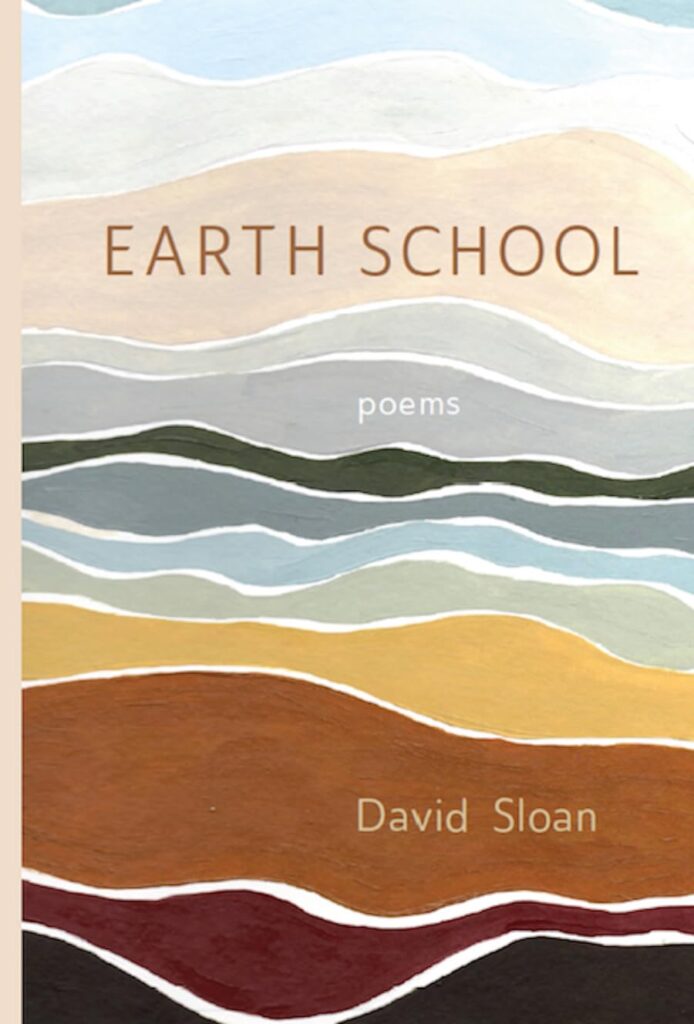Earth School
Earth School, by David Sloan.
Deerbrook Editions, 2024,
83 pages, paper, $18.95,
ISBN 979–8–9903529–0–2
Fire — its fundamental power is transformation, whether mythological, like the phoenix, a test, as in trial by fire, cold to warmth, love, or simply food. Imagine the difference between a steaming baked potato and one pulled from the fridge the next morning for breakfast, butter congealed on top.
Sloan’s third and latest collection of poetry summons flame in its every form to highlight, to cajole, to sorrow, to reminisce. The collection oozes a sort of melancholy triumph at being alive and momentarily recognizing that fact.
In “Sea–Through,” written after Hanna Berta’s “Seaheart,” Sloan spins his poem through the prism of another artwork, a process the Greeks called ekphrasis, in one of several ekphrastic poems in the collection.
I have scoured Maine’s shorelines,
seeking everyday miracles,
portents, maybe absolution
Which might well stand as an indicator of Sloan’s inspiration and writing process, often returning to the natural world. The poems drift from home to memory to imagination, exploring ordinary moments that are in fact nodes, just how, in “Popham,” “a mittenless woman holds a sand dollar / up to the anemic light almost as an offering.”
The poems are collected in four numbered sections, though the themes move fluidly throughout the book: family, marriage, aging, nostalgia, death. Sloan’s cadence runs something like an irregular anapest, by which he presents a couple of poignantly reflective poems followed by one wrapped in a sparkly bow marked “humor.”
Even when “Leaning In” for his first kiss, contemplating “18 Ways of Looking at a Golf Ball” or reveling in publication with “Man Gives Birth . . . To Book!” Sloan’s work points to our everydays and how we can see them afresh. And that is the fire at the core of the book, an insistent perseverance of spirit, and persistence on seeing the world in all its technicolor, like
a diver who glimpses treasure
and momentarily grasps the gold
before the currents rip it away.”
That theme appears elsewhere on the surface as it lingers everywhere, a sense of urgency not so much that we take life by the horns, but that we recognize what we have. On one page “The Point” when a granddaughter asks, “What needs mending?” the next page’s “After–School Storm” seems to answer:
Curled up in Grandpa’s arms, listening to his worried heart,
even with the thunder growling like a rolling trash can,
and rain rattling against the roof and windows,
I felt safer in that storm than I have ever felt since.
We’re all in need of mending, as we watch the world burning away, gather our treasures, and wonder later why we saved the coasters (“Before the House Burned Down”). Fire is the end, the beginning of something yet unknown, and a marvelous display in the moment, calling us to a
. . . savoring,
to tether us all to this moment.
And that is ultimately what these poems accomplish. They are eminently re–readable, accessible yet not simple, well–balanced between reading aloud to someone else and savoring in solitude.
— John Reinhart


